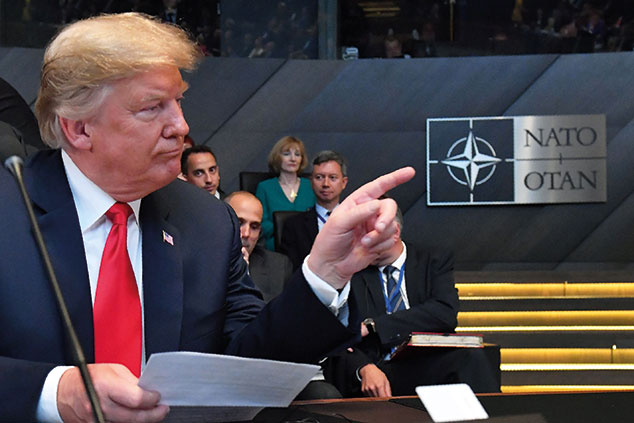
“The days are for great empires and not for little states.” So said Joseph Chamberlain, Britain’s then-colonial secretary in 1902. He reckoned the world’s populations would be much better off being managed by rational, orderly, perhaps even rules-based supranational organisations. He might have been right – but the little states in question didn’t agree with him for long enough to find out. This is a story that has played out several times in the past – and is doing so again now. Here’s an unnamed EU official, quoted in the FT this week: “There is no such thing as a sovereign country any more. It is an illusion the Brits are all chasing, but it has gone.”
Has it? People like self determination. They like to feel they matter. They like sovereignty. And they particularly like all those things if they feel (rightly or wrongly) that supranational organisations aren’t playing fair. Look around the world – sovereignty is alive and well. Britain used hers to vote to leave the EU (there is plenty of call for mild irritation here at the moment by the way, but no need for actual hysteria – see John Stepek’s views in this week’s issue).
States across the rest of the EU are using theirs to demand changes to border controls. The US is using its to push back against every supranational organisation out there. Here’s Trump on the EU (one of his more reasonable, fact-based tweets): the EU “makes it impossible for our farmers and workers and companies to do business in Europe… and then they want us to happily defend them through Nato, and nicely pay for it. Just doesn’t work!”
Consider too how states are starting to think about multinationals. For a long time, nations have been encouraged to see them as another kind of supranational entity – key to our well being, but outwith our control. That’s changing too. Witness the record £500,000 fine the Information Commissioner’s Office plans for Facebook after the Cambridge Analytica breach.
That may sound low, given Facebook’s revenues, but the message is in the fact that it is the top possible fine under the 1998 Data Protection Act. Under the new rules (GDPR), the maximum would have been £1.2bn – enough to give even big tech food for thought (and investors reason to worry). Sovereignty is still with us – as little states are making increasingly clear. This is the global shift to watch.
You’ll be wondering what to do with your money while it plays out. For part of the answer, do read John’s piece: there’s good reason to invest in the UK, despite our domestic politics. Also look at Max King’s views on the infrastructure sector.
Finally, for some much-needed optimism, see Matthew Lynn: not only is growth still rising almost everywhere, but it turns out that our data collection understates growth so much that the “great stagnation”, which has caused so much panic over the last decade, might never have happened at all.